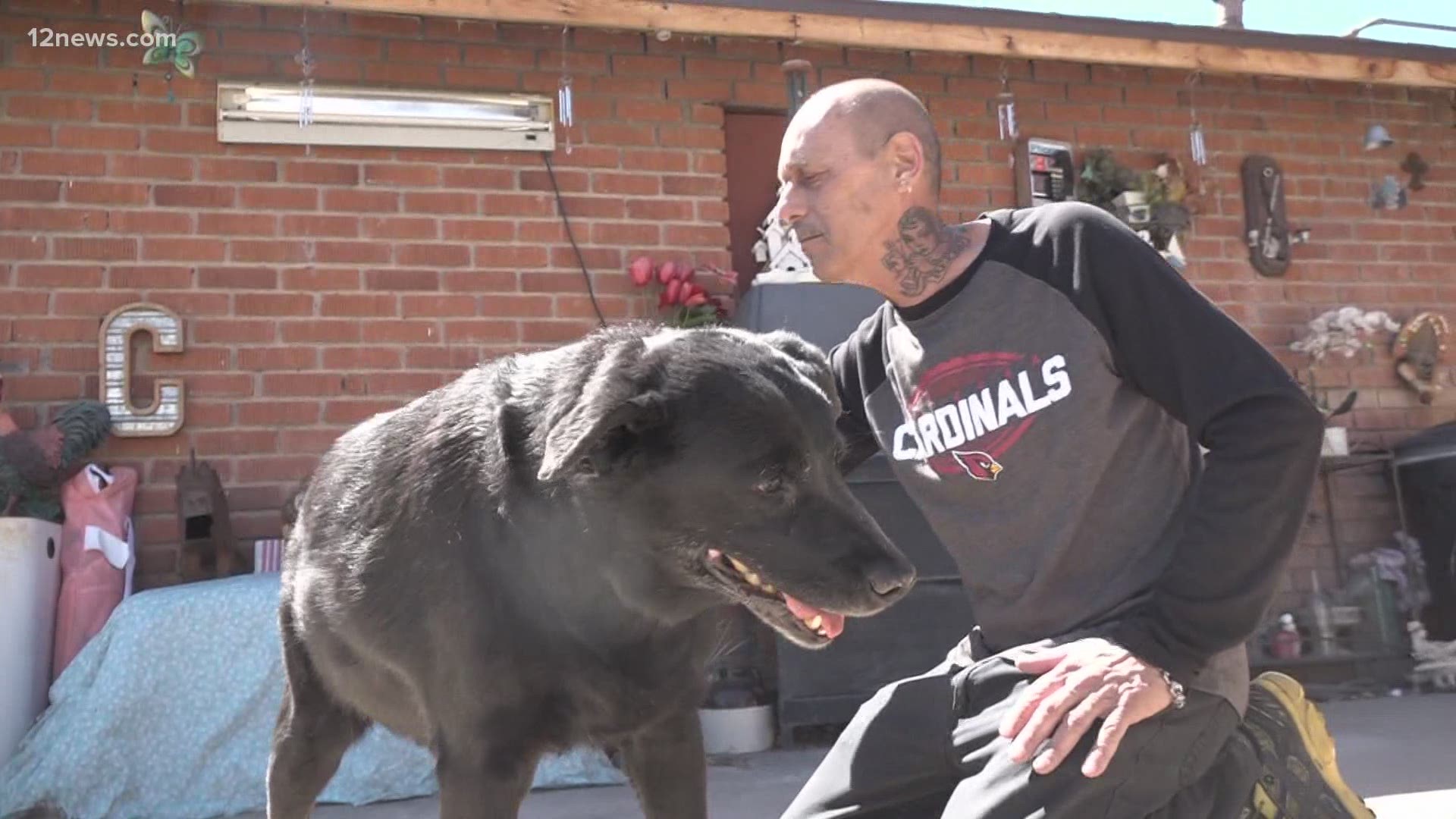SCOTTSDALE, Ariz. — Charles Mudge is skinny, and he’s getting skinnier. Sometimes in the middle of a casual conversation, he will look down to the waistband of his blue jeans and tighten his belt by another loop.
He’s running out of loops, and COVID-19 is to blame.
Mudge is a COVID long-hauler, meaning some of the symptoms of the disease caused by the coronavirus infection that has shut down the world have persisted long after the most severe symptoms have disappeared.
In March 2020, Mudge says he felt like he had the flu. He also lost his sense of taste and smell and along with them his appetite. Now in March 2021, he hasn’t had aches, chills, fever, or difficulty breathing in months, but he also hasn’t had a decent meal.
“I never really felt really hungry but I know I had to eat. I tried to force myself but could not get it down. It just wouldn’t go past my throat,” Mudge said. “ It almost felt like my throat just didn’t want to swallow food and my stomach didn’t want to receive it.”
Months passed, and Mudge says he lost 30 pounds, dropping from 160 pounds to 130 pounds while subsisting mainly on cottage cheese and a hamburger if he could even keep the hamburger down.
“Not having any energy. Just being worn out constantly. No energy. No real sense of having to do anything except you know you have to eat. You just can’t,” Mudge said.
According to Dr. Bronwyn Carlblom at the Southwest College of Naturopathic Medicine, COVID patients who suffer symptoms for more than a month meet the definition of a long-hauler.
She cited a study from the UK that found that 10% of COVID patients have experienced persistent symptoms. She also cited a different study from Italy that looked at patients who suffered through severe COVID, requiring hospitalization. That study found “something more like 87% of still having symptoms at the one-month mark.”
The disparity in numbers demonstrates just how new the virus is and how little the medical community knows about it compared to other diseases that have been around the world for much longer.
“We are only a year in. The grand scheme of a virus lifetime and viral mutations as they go through their own infectious process we are still very early on in how we gather scientific data,” Carlblom said.
“In a decade, of course, we’re going to know more about this disease - how to treat it how it mutates all of that stuff - we’ll know more.”
A review in the journal Nature Medicine provided details the wide-ranging impact the virus can have on the body and estimates that as many as one-third of COVID-19 patients may continue to experience symptoms long-term.
A report by NBC News found that “ The most common symptoms of long-term Covid-19 included fatigue, shortness of breath, brain fog, loss of sense of smell or taste, anxiety, depression and post-traumatic stress disorder.”
Carlblom believes regular visits and communication with primary care physicians is crucial to those suffering through long-haul symptoms.
“I think having a good relationship with your doctor is really important in this situation because you need to feel supported and you need that kind of backup from the health care system to make sure that you’re getting better,” Carlblom said.
Charles Mudge says he has experienced most of those symptoms and that he has an appointment with his doctor this week.
Mudge works as a custodian and property manager at a church in South Scottsdale and lives on church-owned property behind the sanctuary. When he walks outside he sees the church steeple, and, with it, a reminder of what has gotten him through the past year.
“I have faith. God’s with me,” Mudge said.
COVID-19 News and Updates
Subscribe to the 12 News YouTube channel to receive notifications on the latest videos about the latest information on the coronavirus.

